
Time To Cook Sustainably
As the clocks go back this weekend and the nights draw in, warm food becomes a comfort and going out seems less appealing.
That means people tend to stay home more and cook more.
Christmas parties are just around the corner and family meals are being planned, but did you know that the pots, pans and dishes you cook with can have a significant impact on the planet?
This week we look at the impact of cookware and how cookware has, like most modern products, become less sustainable over the years.

Cookware – A Short History
Due to the scant amount of archaeological evidence, we know very little about cooking utensils before the invention of pottery.
The earliest ceramic pots, dating from around 19,600 years ago and were found in China’s Jiangxi province’s Xianrendong Cave.
The earthenware, which was made by hunter-gatherers, was most likely used as cookware.
In Asia, bamboo tubes with clay ends served as useable containers, while Tehuacan Valley residents started crafting large stone bowls that were permanently inserted into a furnace as early as 7,000 BC.
By the 17th century, a Western kitchen would often include numerous skillets, baking pans, a kettle, and several pots, as well as a variety of trivets and pot hooks.
Pots would last generations.
During the 19th and 20th centuries, advances in metallurgy made it possible to create cookware at a reasonable cost out of metals like steel, stainless steel, and aluminium.
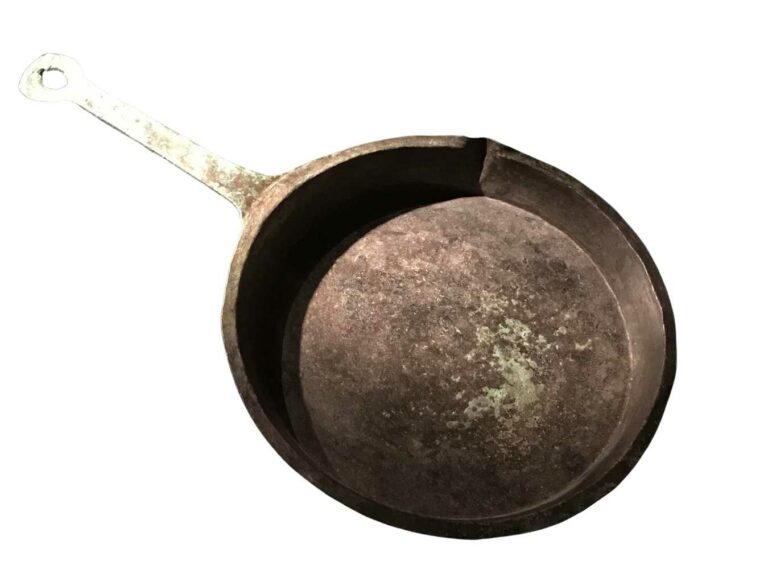
Why Does Cookware Have an Impact and What Is It?
Today, just buying new cookware can be daunting, with the huge amount of choice, materials and added features.
The most popular choices to start with are none-stick, cast iron, and stainless steel.
Non-stick cookware is really easy to use.
However, the non-stick coating’s production generates dangerous by-products, and overheating the pans can cause hazardous chemicals to leak into your kitchen.
Even if we ignore the potential health risks, the non-stick coating is easily scratched and only lasts three to five years on average.
Since non-stick cookware wears out quickly, they are the antithesis of sustainability as every time you replace your cookware, your kitchen’s carbon footprint grows.
Unfortunately, non-stick pans cannot easily be recycled due to the coating, according to Recyclebank.
Research by a company in New Zealand discovered that the issue of non-stick pans has become so bad that around 1.3 million are thrown away each year (just in New Zealand) and a staggering 66 million in the last 50 years!
The stainless steel in pans takes hundreds of years to break down and if it has a plastic handle, that takes even longer!
Your choice of pan is not something that you would normally think would impact your footprint, it really does.
Cookware Materials
Ceramics are a great way to go and are a versatile cookware material than can be used on the hob, in the oven and usually in the microwave.
Ceramic cookware is made from kiln-hardened natural clay which is the most readily available and least damaging material to make cookware from.
Another benefit is that ceramic cookware can be recycled to create new goods so has circularity built into it.
Ceramic does have its drawbacks – it can be high priced and it is more fragile than steel or iron cookware.
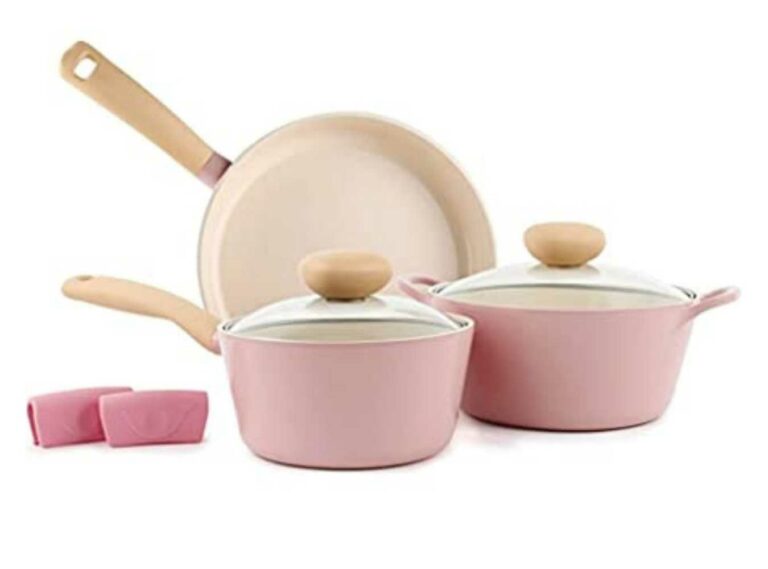
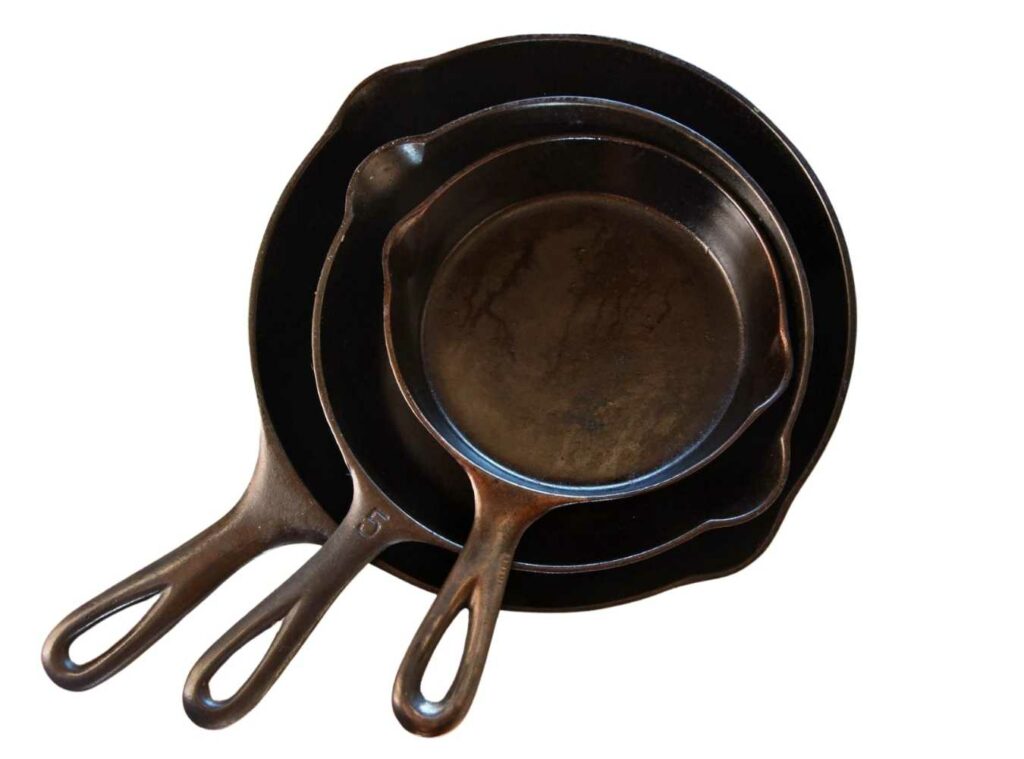
The classic kitchen workhorses are pots and pans made of cast iron and these have been used for cooking since the iron age (1200 B.C. and 600 B.C).
They can be handed down through the generations if cared for properly and stored, eventually acquiring a non-stick-like coating from careful seasoning and use.
Iron pans are also versatile and offer a great return on investment
Cast iron gets high sustainability points for its long lifetime and the fact that it is also recyclable.
Cookware made of steel has been around for a while, but the benefits and drawbacks vary depending on the alloy.
Shiny stainless steel and darker carbon steel are the most popular alloys.
Stainless steel pans are made from a combination of iron and chromium that produces a shiny easy-to-clean surface, prevents corrosion, and is lighter than cast iron.
Compared to stainless steel, carbon steel has a greater carbon content and is renowned for feeling lightweight.
Like cast iron, carbon steel cookware needs more maintenance and it can’t be left to soak.
With proper care, both stainless and carbon steel products can last many years and steel alloys are usually highly recyclable.
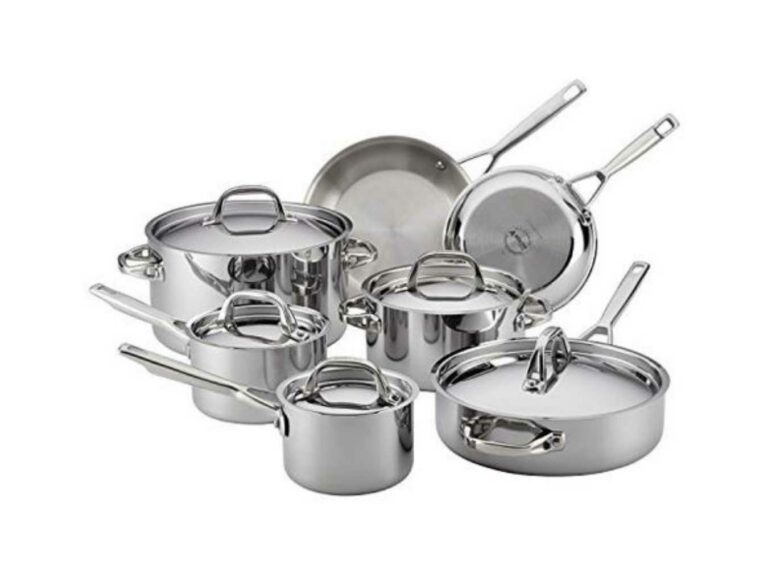
Some of Our Favourite Brands
So now you have a little more idea about the impact of cookware and can make more conscious choices around the material make-up of your cookware.
If you need to replace some cookware, we have had a look at what brands are out there and here are three of our favourites!
The first brand we like is Emba Cookware which takes existing cast iron waste (typically from the automotive industry) and re-smelt it.
By recycling, refining and re-casting scrap iron already in the UK system, they can create hardwearing, high quality and sustainable cookware that gives many years – decades, even – of new use.
Emba sells a range of cast iron cookware, made in the UK which if used correctly can add to the cooking experience and last generations.
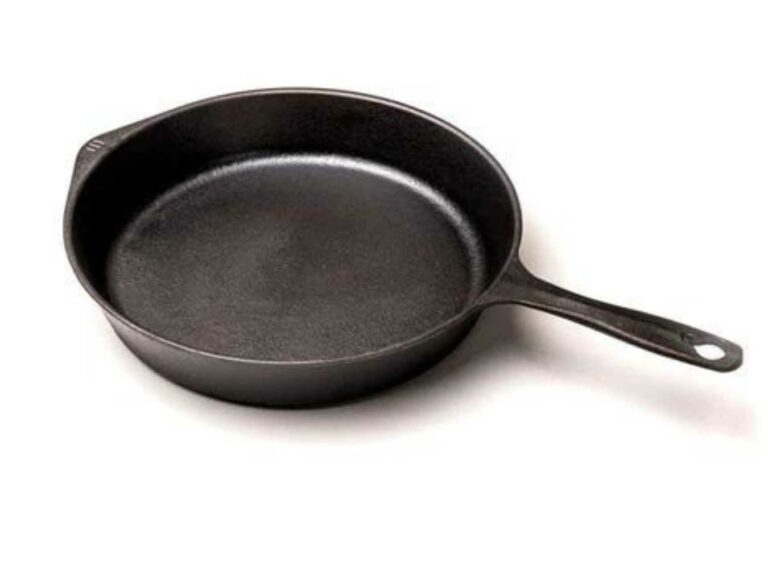
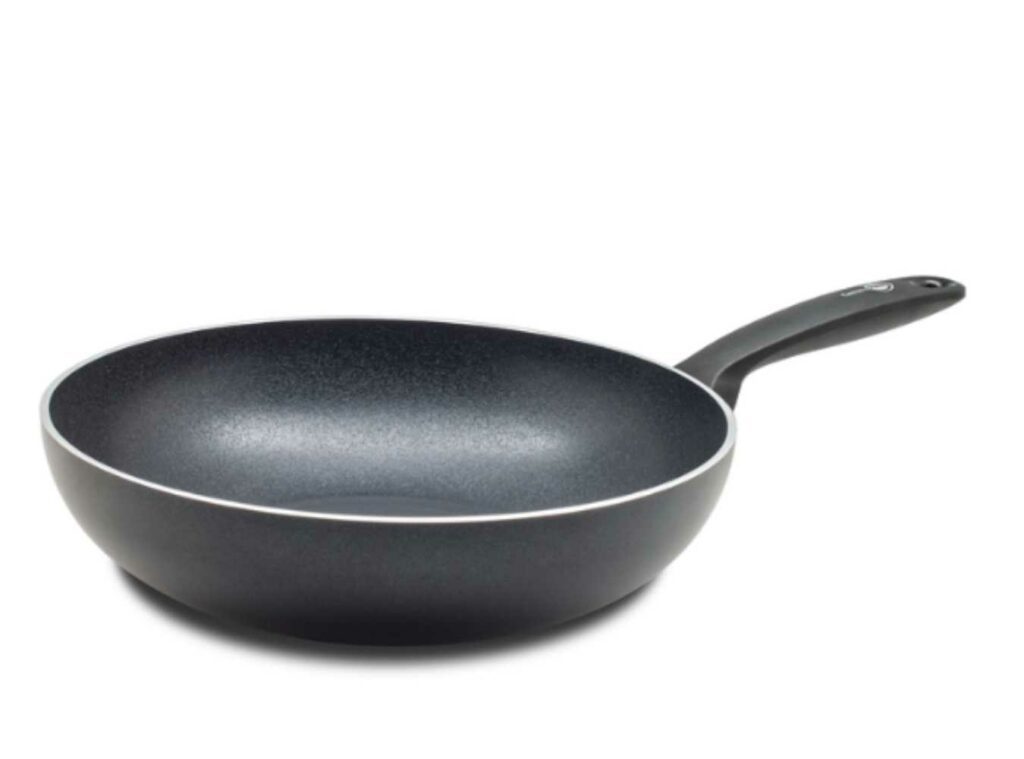
Our second brand is Prestige which makes an entire range of eco cookware.
Every piece in the Eco cookware range, along with its packaging, is made from recycled materials and is fully recyclable.
The Eco range includes their unique plant-based non-stick finish inside and out & is PFOA free and Palm oil free.
Made from recycled materials as well as being recyclable themselves; so better for you, your family and the planet!
Our final brand is Greenpan which makes pans with a new coating called Thermelon which is made from sand and does not require toxic chemicals and is recyclable.
The coating is also a great conductor meaning you can cook at a lower heat setting, saving energy and according to Greenpan, 60% less CO2 is made compared to traditional non-stick pans.
Greenpan has a variety of eco-friendly cookware available from frying pans, woks, grill pans, pancake pans and more and if you head over to their website shop, you can take advantage of a fantastic 20% discount on all products.
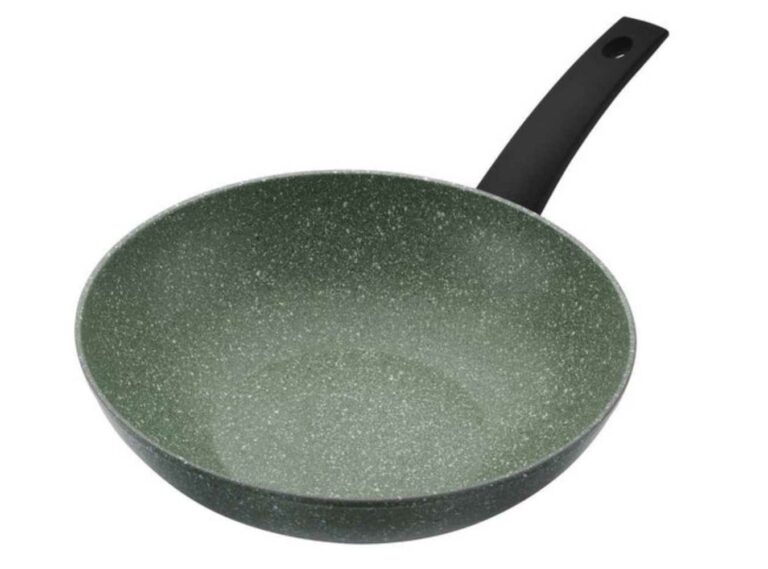
That’s it for this week.
We hope you learned something new and now look at your cookware differently and can make more informed decisions when you need to renew.
Thanks for reading and if you have any suggestions, please drop Play It Green a line using our contact form or email info@playitgreen.com.





